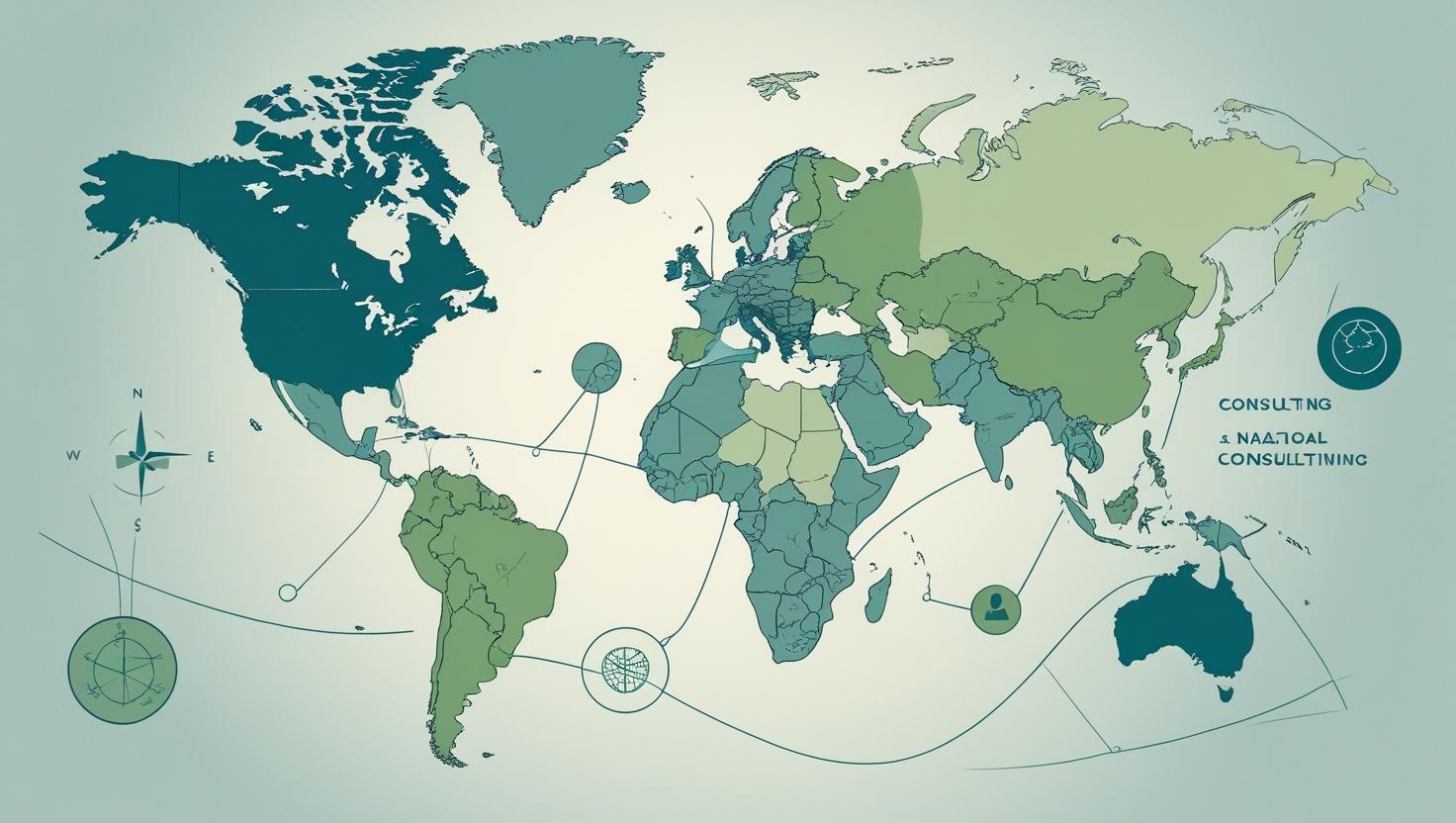Unlocking Your Strengths in Cross-National Work
Globalization wasn’t really designed as a playground for personal growth, but to serve capital. Trade treaties, offshore labor, and transnational mergers rarely prioritized human connection. Yet amid this architecture of profit, individuals are still asked to collaborate across borders, make decisions together, and deliver results in teams shaped by wildly different cultural expectations.
This tension defines modern cross-national work with individuals navigating complex cultural terrain within systems that weren’t built for nuance. And yet, this is exactly where we must find meaningful transformation. When individuals bring self-awareness, humility, and communication skills into cross-border settings, they don’t just keep projects running. They carve out small but powerful spaces where understanding, equity, and trust can take root. This often happens in spite of the system, not because of it. After all, there are rarely enough time and resources to make it happen
When you work across borders, your unique strengths become essential tools. Maybe you’re a great listener who can pick up on subtle cultural cues, or perhaps you’re skilled at bridging communication gaps between diverse teams. Perhaps your openness to learning from others allows you to navigate unfamiliar environments with confidence.
By recognizing and developing these personal strengths, you can turn cross-national work into an opportunity for growth. It’s about embracing curiosity, building trust despite differences, and using your skills to create connections that go beyond geographical boundaries. In doing so, you not only contribute to your team’s success but also expand your own horizons, both professionally and personally.
Cross-National Strengths vs. Potential Pitfalls
| Strengths | Potential Problems |
|---|---|
| Cultural Curiosity: Openness to learning about different customs and perspectives. | Cultural Assumptions: Ignoring differences or relying on stereotypes can lead to misunderstandings and offense. |
| Active Listening: Tuning in to verbal and non-verbal cues to fully understand others. | Miscommunication: Poor listening can cause misinterpretation, frustration, and errors. |
| Adaptable Communication: Adjusting style to fit cultural preferences and contexts. | Rigid Communication: Insisting on one style (e.g., directness) can create conflict or disengagement. |
| Building Trust: Being reliable, transparent, and consistent to foster confidence. | Lack of Trust: Inconsistency or lack of follow-through erodes relationships and cooperation. |
| Humility and Learning Mindset: Embracing mistakes as growth opportunities. | Defensiveness: Refusing to acknowledge errors or differences can stall collaboration and damage morale. |
The Importance of a Common Strategy: Making It Stick and Grow
While individual strengths are essential, cross-national work thrives when these efforts are aligned under a shared strategy. Developing a common strategy means agreeing on goals, communication norms, decision-making processes, and conflict resolution approaches that respect the cultural diversity of the team.
To make this strategy stick and fester:
- Involve Everyone in the Process: Build the strategy collaboratively so all voices are heard and ownership is shared. This increases commitment and relevance across cultures.
- Document and Communicate Clearly: Ensure the strategy is accessible and easy to understand, using language that resonates with all team members. Reinforce it regularly in meetings and updates.
- Embed Rituals and Practices: Use recurring check-ins, cultural sharing sessions, and feedback loops to keep the strategy alive and evolving.
- Celebrate Small Wins: Recognize moments when the strategy has helped overcome challenges or built trust. Positive reinforcement encourages continued adherence.
- Adapt Over Time: Be ready to revisit and revise the strategy as the team grows, learns, and encounters new contexts or challenges.
When individuals bring their strengths together within a living, breathing common strategy, cross-national teams can move beyond managing differences to truly leveraging diversity as a source of innovation, resilience, and success.
Thoughts and Takeaways
Cross-national work is rich with opportunity, but it demands intentional effort and time from individuals and teams alike. By cultivating personal strengths like cultural curiosity, active listening, and adaptability, and by aligning those strengths within a shared, evolving strategy, professionals can build trust, bridge differences, and drive meaningful collaboration.
Key takeaways to thrive in cross-national work:
- Embrace curiosity and ask questions instead of assumptions.
- Listen actively to both spoken words and unspoken cues.
- Adapt your communication style to fit different cultural contexts.
- Build trust through consistency and transparency.
- Approach mistakes with humility and a learning mindset.
- Develop a shared strategy collaboratively and keep it alive through ongoing communication and adaptation.
With these practices, cross-national work becomes not only manageable but a powerful driver of personal growth and organizational success. Just be aware that it does take time.


Leave a Reply